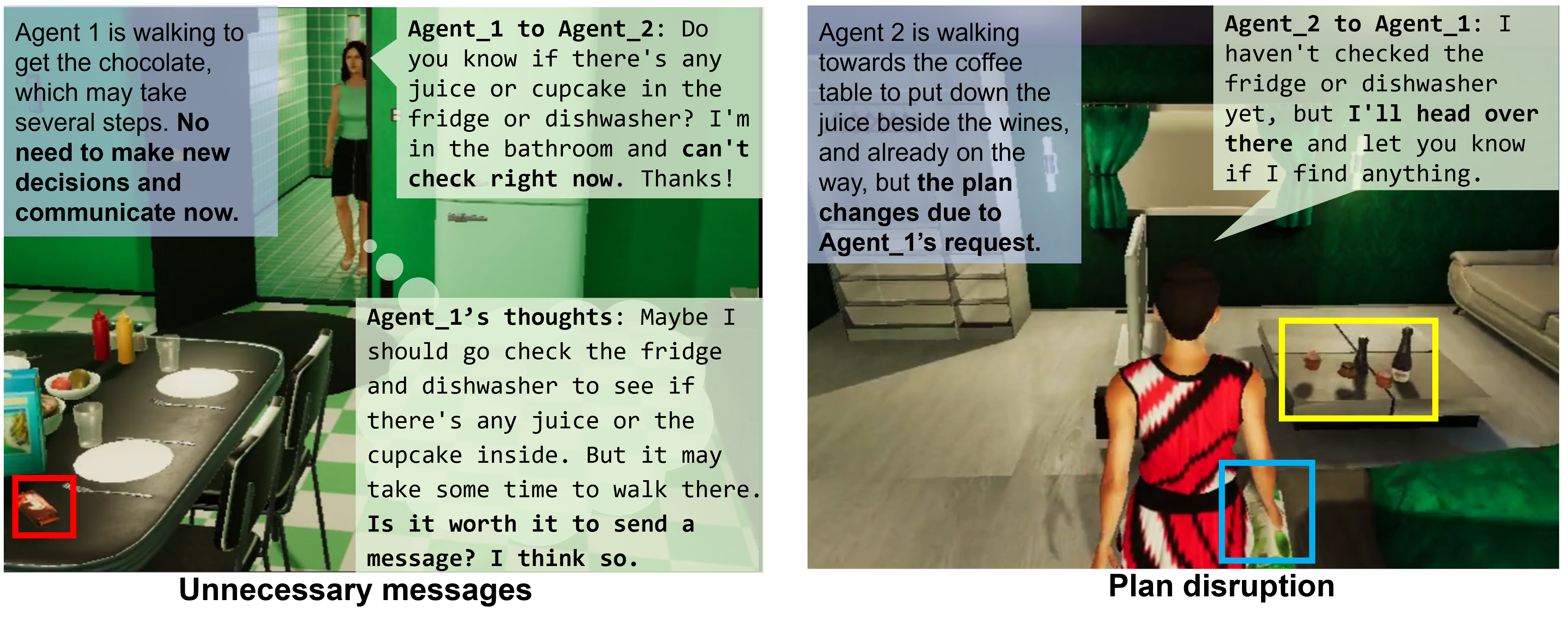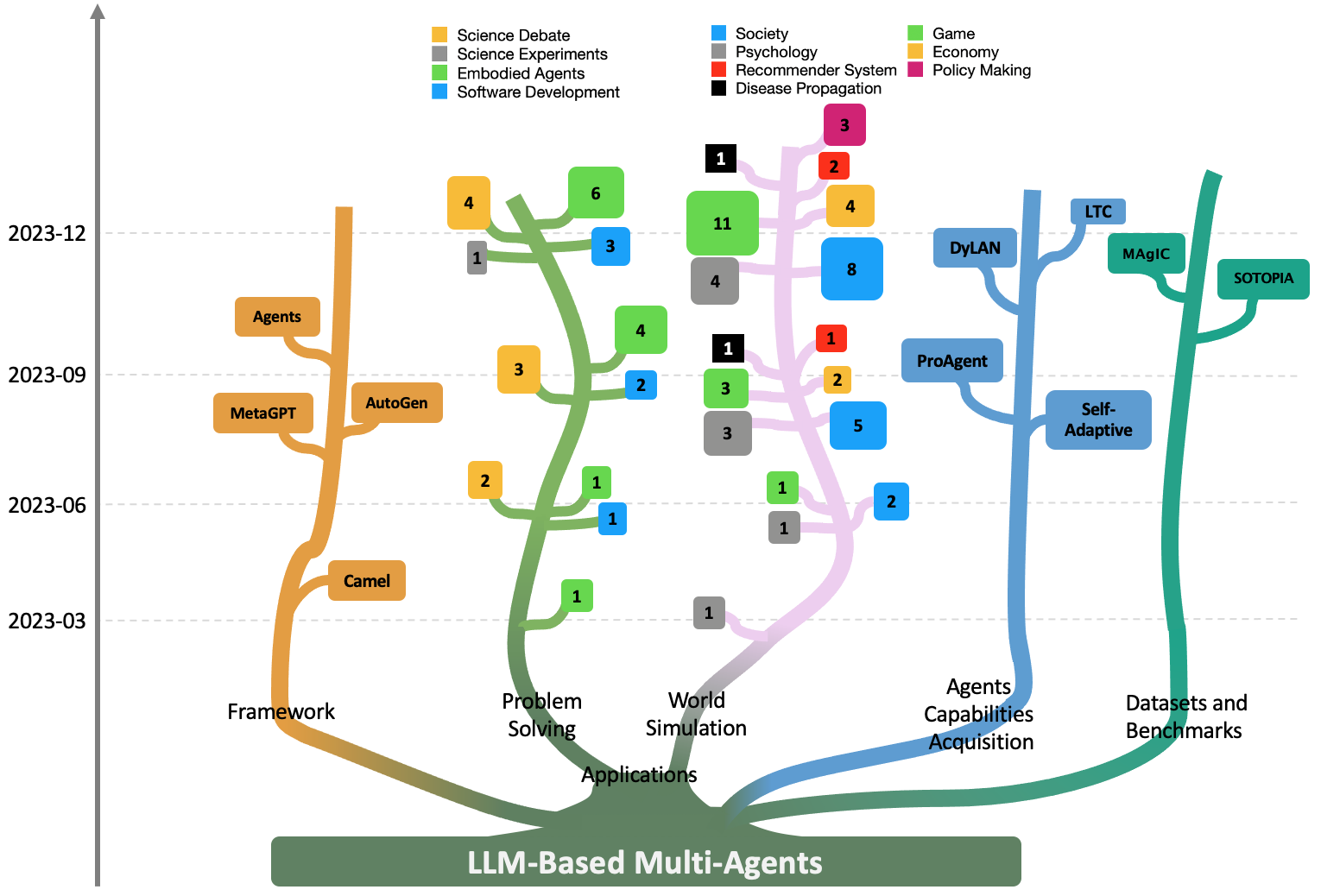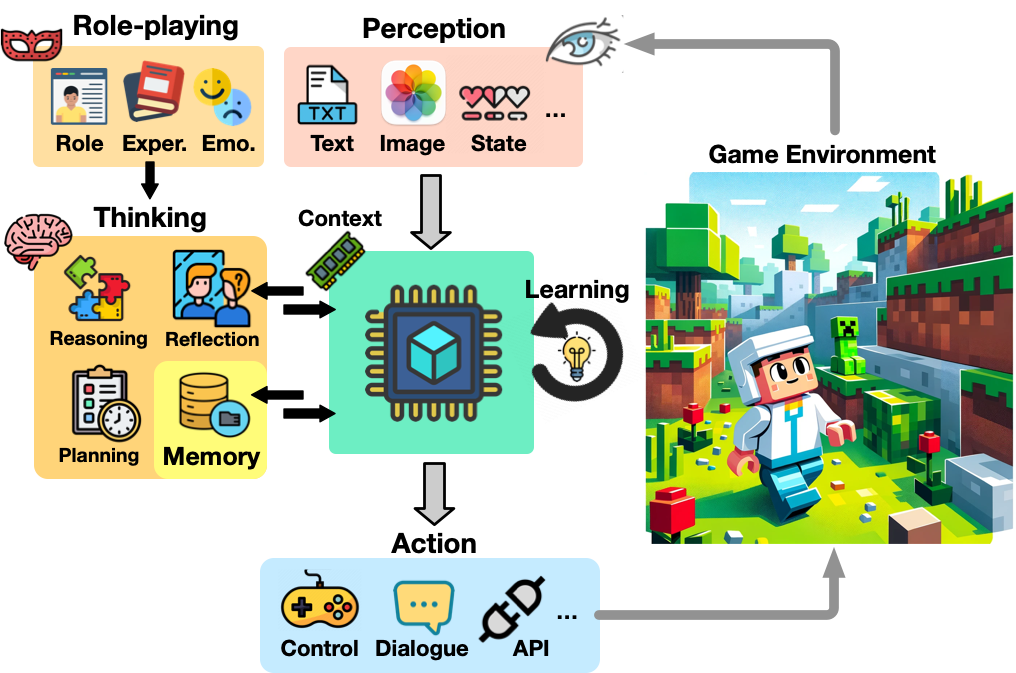Adaptive In-conversation Team Building for Language Model Agents
2405.19425

0
0

Abstract
Leveraging multiple large language model (LLM) agents has shown to be a promising approach for tackling complex tasks, while the effective design of multiple agents for a particular application remains an art. It is thus intriguing to answer a critical question: Given a task, how can we build a team of LLM agents to solve it effectively? Our new adaptive team-building paradigm offers a flexible solution, realized through a novel agent design named Captain Agent. It dynamically forms and manages teams for each step of a task-solving process, utilizing nested group conversations and reflection to ensure diverse expertise and prevent stereotypical outputs. It allows for a flexible yet structured approach to problem-solving and can help reduce redundancy and enhance output diversity. A comprehensive evaluation across six real-world scenarios demonstrates that Captain Agent significantly outperforms existing multi-agent methods with 21.94% improvement in average accuracy, providing outstanding performance without requiring task-specific prompt engineering.
Create account to get full access
Overview
- This paper presents an approach for adaptive in-conversation team building with language model agents.
- The key idea is to enable language model agents to dynamically form effective teams during conversations, adjusting their roles and behaviors to complement each other and achieve shared goals.
- This builds on prior research on embodied LLM agents learning to cooperate, multi-agent systems with LLMs, and LLM-based game agents.
Plain English Explanation
The paper describes a way for AI language models to work together more effectively as a team during conversations. The key insight is that the AI models can dynamically adjust their roles and behaviors to complement each other and better achieve shared goals, rather than sticking to fixed pre-defined roles.
For example, imagine a team of AI assistants helping a human user plan a trip. One assistant might focus on finding flight options, another on booking hotels, and a third on suggesting activities. But rather than having these fixed roles, the AIs could adapt based on the conversation, with one assistant taking the lead on booking flights if that became the priority, while another shifted to researching local attractions.
This adaptive team formation allows the AI models to be more agile and responsive to the user's needs, drawing on their individual strengths in a coordinated way. It builds on prior work on getting AI agents to cooperate, interact in multi-agent systems, and play games - but applies these ideas specifically to language model-based conversational assistants.
Technical Explanation
The paper presents a framework for adaptive in-conversation team building with language model agents. The key components include:
- Team Roles: Each agent is assigned a high-level role (e.g. information gatherer, task executor) that shapes their behavior and outputs.
- Team Dynamics: The agents continuously assess the team's performance and each other's contributions, and dynamically adjust their roles and behaviors to optimize the team's effectiveness.
- Coordination Mechanisms: The agents use protocols for sharing information, negotiating responsibilities, and making joint decisions to achieve the team's shared goals.
The agents leverage large language models (enhanced with low-parameter techniques) to engage in natural conversations, understand context, and generate relevant responses. Through iterative team interactions, the agents learn to form cohesive and adaptive teams that can fluidly handle complex, open-ended tasks.
The authors evaluate their approach in a simulated conversational task, demonstrating improved team performance and user satisfaction compared to static team formations. The results suggest that adaptive in-conversation team building is a promising direction for enhancing the capabilities of language model-based agents.
Critical Analysis
The paper presents a compelling approach for improving the teamwork and coordination of language model agents. However, some potential limitations and areas for further research are:
- The simulated evaluation environment may not fully capture the complexities of real-world conversational scenarios. More extensive testing with human users would be valuable to assess the approach's real-world effectiveness.
- The coordination mechanisms described are relatively simple, and more advanced protocols may be needed to handle situations with conflicting goals or incomplete information.
- The long-term implications of having highly adaptive teams of AI agents interacting with humans are not fully explored - there may be trust, transparency, or ethical concerns that need to be addressed.
Overall, the paper makes a strong case for the benefits of adaptive in-conversation team building, but further research is needed to fully understand the approach's capabilities and limitations.
Conclusion
This paper presents a novel framework for enabling language model agents to form adaptive teams during conversations, adjusting their roles and behaviors to better complement each other and achieve shared goals. By drawing on techniques from multi-agent systems and game agent research, the authors demonstrate how language model agents can become more agile and effective at open-ended conversational tasks.
While the approach shows promise, further research is needed to address potential limitations and explore the broader implications of having highly adaptive teams of AI agents interacting with humans. Nevertheless, this work represents an important step forward in enhancing the capabilities of language model-based conversational agents.
This summary was produced with help from an AI and may contain inaccuracies - check out the links to read the original source documents!
Related Papers

Multi-Agent Software Development through Cross-Team Collaboration
Zhuoyun Du, Chen Qian, Wei Liu, Zihao Xie, Yifei Wang, Yufan Dang, Weize Chen, Cheng Yang

0
0
The latest breakthroughs in Large Language Models (LLMs), eg., ChatDev, have catalyzed profound transformations, particularly through multi-agent collaboration for software development. LLM agents can collaborate in teams like humans, and follow the waterfall model to sequentially work on requirements analysis, development, review, testing, and other phases to perform autonomous software generation. However, for an agent team, each phase in a single development process yields only one possible outcome. This results in the completion of only one development chain, thereby losing the opportunity to explore multiple potential decision paths within the solution space. Consequently, this may lead to obtaining suboptimal results. To address this challenge, we introduce Cross-Team Collaboration (CTC), a scalable multi-team framework that enables orchestrated teams to jointly propose various decisions and communicate with their insights in a cross-team collaboration environment for superior content generation. Experimental results in software development reveal a notable increase in quality compared to state-of-the-art baselines, underscoring the efficacy of our framework. The significant improvements in story generation demonstrate the promising generalization ability of our framework across various domains. We anticipate that our work will guide LLM agents towards a cross-team paradigm and contribute to their significant growth in but not limited to software development. The code and data will be available at https://github.com/OpenBMB/ChatDev.
6/14/2024

Embodied LLM Agents Learn to Cooperate in Organized Teams
Xudong Guo, Kaixuan Huang, Jiale Liu, Wenhui Fan, Natalia V'elez, Qingyun Wu, Huazheng Wang, Thomas L. Griffiths, Mengdi Wang

0
0
Large Language Models (LLMs) have emerged as integral tools for reasoning, planning, and decision-making, drawing upon their extensive world knowledge and proficiency in language-related tasks. LLMs thus hold tremendous potential for natural language interaction within multi-agent systems to foster cooperation. However, LLM agents tend to over-report and comply with any instruction, which may result in information redundancy and confusion in multi-agent cooperation. Inspired by human organizations, this paper introduces a framework that imposes prompt-based organization structures on LLM agents to mitigate these problems. Through a series of experiments with embodied LLM agents and human-agent collaboration, our results highlight the impact of designated leadership on team efficiency, shedding light on the leadership qualities displayed by LLM agents and their spontaneous cooperative behaviors. Further, we harness the potential of LLMs to propose enhanced organizational prompts, via a Criticize-Reflect process, resulting in novel organization structures that reduce communication costs and enhance team efficiency.
5/24/2024

Large Language Model based Multi-Agents: A Survey of Progress and Challenges
Taicheng Guo, Xiuying Chen, Yaqi Wang, Ruidi Chang, Shichao Pei, Nitesh V. Chawla, Olaf Wiest, Xiangliang Zhang

0
0
Large Language Models (LLMs) have achieved remarkable success across a wide array of tasks. Due to the impressive planning and reasoning abilities of LLMs, they have been used as autonomous agents to do many tasks automatically. Recently, based on the development of using one LLM as a single planning or decision-making agent, LLM-based multi-agent systems have achieved considerable progress in complex problem-solving and world simulation. To provide the community with an overview of this dynamic field, we present this survey to offer an in-depth discussion on the essential aspects of multi-agent systems based on LLMs, as well as the challenges. Our goal is for readers to gain substantial insights on the following questions: What domains and environments do LLM-based multi-agents simulate? How are these agents profiled and how do they communicate? What mechanisms contribute to the growth of agents' capacities? For those interested in delving into this field of study, we also summarize the commonly used datasets or benchmarks for them to have convenient access. To keep researchers updated on the latest studies, we maintain an open-source GitHub repository, dedicated to outlining the research on LLM-based multi-agent systems.
4/22/2024

A Survey on Large Language Model-Based Game Agents
Sihao Hu, Tiansheng Huang, Fatih Ilhan, Selim Tekin, Gaowen Liu, Ramana Kompella, Ling Liu

0
0
The development of game agents holds a critical role in advancing towards Artificial General Intelligence (AGI). The progress of LLMs and their multimodal counterparts (MLLMs) offers an unprecedented opportunity to evolve and empower game agents with human-like decision-making capabilities in complex computer game environments. This paper provides a comprehensive overview of LLM-based game agents from a holistic viewpoint. First, we introduce the conceptual architecture of LLM-based game agents, centered around six essential functional components: perception, memory, thinking, role-playing, action, and learning. Second, we survey existing representative LLM-based game agents documented in the literature with respect to methodologies and adaptation agility across six genres of games, including adventure, communication, competition, cooperation, simulation, and crafting & exploration games. Finally, we present an outlook of future research and development directions in this burgeoning field. A curated list of relevant papers is maintained and made accessible at: https://github.com/git-disl/awesome-LLM-game-agent-papers.
4/3/2024